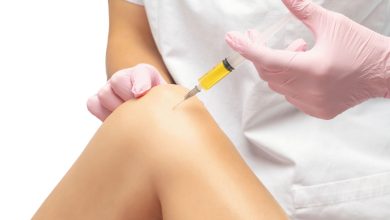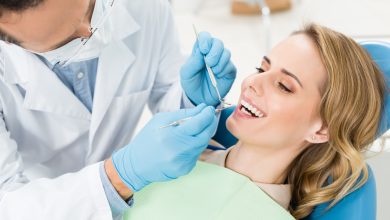As we age, we tend to get worried about our health. While worrying about your health is normal, you can take certain steps such as getting the right tests to preserve your health and identify any condition on time, increasing your chances of successful treatment.
The following health screening London is necessary to ensure you remain healthy.
Abdominal aortic aneurysm (AAA) screening
AAA screening checks for swelling or budge is in the aorta.
-
What does it involve
AAA screening involves carrying out an ultrasound on the stomach. The procedure is reliable, quick and painless.
-
Why is it important?
The aorta is the principal blood vessel in the heart which pumps blood from the heart to other parts of the body. If there is a swelling in your aorta and it increases, it could burst, leading to bleeding inside the stomach, which is life-threatening.
Find the Right Investment Path for You
An abdominal aortic aneurysm does not cause symptoms in most cases, but the test can identify the condition before the swollen aorta bursts.
-
How often do I need the test?
In England, men get the AA test when they are 65 because it is more common in men. Women do not get routine AAA screening, including men below 65 years and people who received treatment for AAA. However, you can request AAA screening if you feel you need it.
-
What happens next?
The GP will tell you the result at the end of the screening. If the result shows an abnormality, you will receive a letter informing you of the further tests needs and possible treatments.
Blood pressure tests
Blood pressure is the force exerted by the blood on the arterial walls. Having high blood pressure weakens the heart and damages the walls of the artery, increasing heart disease, kidney disease and stroke risks.
-
What does it involve?
Your healthcare professional will fit a cuff around your upper arm and inflate it until it becomes tight. The test is painless and quick, taking only a few minutes.
-
Why is it important?
About 30% of adults have high blood pressure, but many people do not know because the condition often shows no symptoms.
-
What happens next?
If your blood pressure result is outside the normal range, your doctor will take other readings. If they all give a high reading, the doctor will tell you steps to lower your blood pressure.
Your GP may recommend a blood test to check for diabetes and kidney function. Your treatment may involve lifestyle changes, but a very high blood pressure may need prescribed medications.
Bowel cancer screening
This screening does not diagnose cancer but detects potential issues that occur before symptoms show.
-
What does it involve?
The test for bowel cancer screening is the faecal occult blood test (FOBt). It is usually sent to the patient by post and involves collecting stool samples over several days on a card. The patient will send the card to the lab for analysis.
This screening is done every two years for men and women between 60 – 74, but people above 75 can request the test.
-
Why is it important?
Bowel cancer is quite common. In the UK, bowel cancer is the fourth most common cancer, but early detection makes treatment easier and increases the chances of survival.
-
What happens next?
This screening checks for traces of blood in the stools. If blood is present, you will need to retake the test. However, blood in stool does not indicate bowel cancer, and you may need a colonoscopy (bowel examination) to rule out bowel cancer. A few persons have had abnormal results and required further testing.
Breast screening
Regular breast screening can identify early signs of breast cancer, and early detection of breast cancer increases the chances of survival. However, a risk of routine screening is that it might pick up cancers that may not be life-threatening or cause any symptoms. This means you may be carrying out unnecessary tests and treatment.
-
What does it involve?
A breast screening involves a breast x-ray. The professional will place each breast on the x-ray machine and gently but firmly compress it with a clear plate. The compression will last for a few seconds, but it is slightly uncomfortable for some women.
-
Why is the test important?
In the UK, one in eight women gets diagnosed with breast cancer.
-
How often should I get breast screening?
You will get your first invitation for a local breast screening when you are between 50 – 53 years, but in some areas, the invitation comes from 47 years until 73 years because the NHS is trying to extend the screening programme. After your first screening, you will receive invitations for the screening every three years until you turn 70.
You can still request breast screening every three years after 70. Your GP can inform you on how to get the screening.
-
What happens next?
Your GP will receive the result and a copy will be sent to you no later than two weeks after your screening. In most cases, the result is normal, but you may need further assessment at the clinic.
Cervical screening
Cervical screening is a cancer prevention method that helps detect abnormalities in the woman’s cervix, which may cause cancer when left untreated.
-
What does the screening involve?
Your nurse or doctor will use a speculum to open the woman’s vaginal, then sweep a small soft brush around the cervix to collect cervical cells. Most women find the procedure slightly uncomfortable, but it is not painful.
-
Why is the screening important?
Each year, about 3,000 new cases of cervical cancers are diagnosed in the UK, but since the introduction of the cervical screening process in the 1980s, the number of cervical cancer cases has reduced.
-
How often should I get checked?
Women between 25 – 64 can get free cervical screening tests every 3 – 5 years. Women above 65 do not get an invitation for cervical screening except they’ve not been screened since their 50th birthday or had an abnormal result in their last three screenings.
-
What happens next?
Your result will be available within two weeks. Most people get a normal result, but if you are invited for further testing, it doesn’t mean you have cancer. About one in 20 women have some abnormal changes in their cervix, which requires further testing and treatment.
Cholesterol tests
Cholesterol is fat transported around the body in the blood. When cholesterol in the blood is high, it accumulates in the arteries, increasing the risk of stroke or heart attack.
-
What does it involve?
Your doctor can check your cholesterol levels by ordering a simple blood test.
-
Why is it important?
High blood cholesterol does not cause symptoms, meaning your cholesterol level may be high, and you won’t know. The only way to know you have high cholesterol is with a blood cholesterol test.
-
What happens next?
Changing your diet, exercising regularly and maintaining a healthy weight can help lower high cholesterol. If you have a high risk of heart disease or have a heart condition, your doctor may prescribe medications like statins to reduce your blood cholesterol level.
Skin checks
Moles on the skin are one of the early signs of skin cancer. Although most moles are harmless, some may develop into a rare skin cancer known as malignant melanoma.
-
What does it involve?
If you observe changes in the size, shape or colour of an existing skin mole, consult your doctor to look at it and refer you to a specialist for further testing if necessary.
-
Why is the check important?
Melanoma is the fifth most common cancer in the UK, with about 13,000 new diagnoses every year. Like other types of cancer, early skin cancer detection and treatment increases the chances of survival.
-
How often should I check my body?
You can check your body for moles every week and visit your doctor if you find any change.
-
What happens next?
If you have a mole that looks or feels abnormal, your doctor may refer you for further testing. The specialist may cut the mole, but you will need further tests to check if cancer has spread if the specialist diagnoses melanoma.
Vaccinations
Most people recover from shingles, flu and pneumonia without complications, but if these infections occur later in life, it may result in serious health issues.
-
What does it involve?
The best protection occurs when you get vaccinated with three different vaccinations. You can ask your doctor for information on your eligibility for free vaccination on the NHS. Flu jabs are also available at local pharmacies.
-
Why is the test important?
Pneumonia and influenza are the fourth most common cause of death in people above 65 years. Shingles also lead to long-term complications and may be life-threatening.
-
How often should I get vaccinated?
If you are 65 or older, flu jabs are free, and you need a jab each year because the flu virus is always changing, and the vaccine is updated to offer maximum protection. If you are below 65 years old but have a long-term condition such as heart disease, diabetes or lung disease, or a caregiver, you can get a free flu jab.
A one-off combination of bacterial meningitis, pneumonia and septicaemia jab is available for people who are 65 years and above or have a long-term condition. One-off shingles jab is available for people between 70 – 79.
Public health service check
The public health service check is a free overall health check-up that can tell if you are at risk of developing some conditions such as diabetes, stroke, kidney disease, and heart attack.
-
What does it involve?
This check takes about 20 – 30 minutes. A healthcare professional will ask you some questions about your family history and lifestyle, measure your weight and height, carry out a blood test, and take your blood pressure reading during the check.
-
Why is the check important?
The result from your blood test and answers to the questions will give the health professional an idea of your chances of developing diabetes, kidney disease, heart disease and stroke.
If you are above 65 years, your healthcare professional will inform you of the symptoms and signs of dementia, and you will get personalised advice to reduce your risk of developing these conditions.
-
Will I be invited for the health check?
You will get an invitation for this check every five years from 40 – 74 years if you do not have diabetes, kidney disease, high blood pressure, heart disease or stroke. If you have a GP surgery that offers public health check, you will get an automatic invitation, but it will come over the next five years if you haven’t gotten the invitation.
The local authority may send you an appointment letter containing where you will carry out the public health service check. If you are not sure of your eligibility for the check but need one, or you are eligible and haven’t gotten the invitation in the last five years, contact your GP for an appointment.
If you want these health tests, you can schedule an appointment at Private Blood tests London. Our health screening package covers the necessary tests needed to assess your overall health to ensure you remain healthy.



